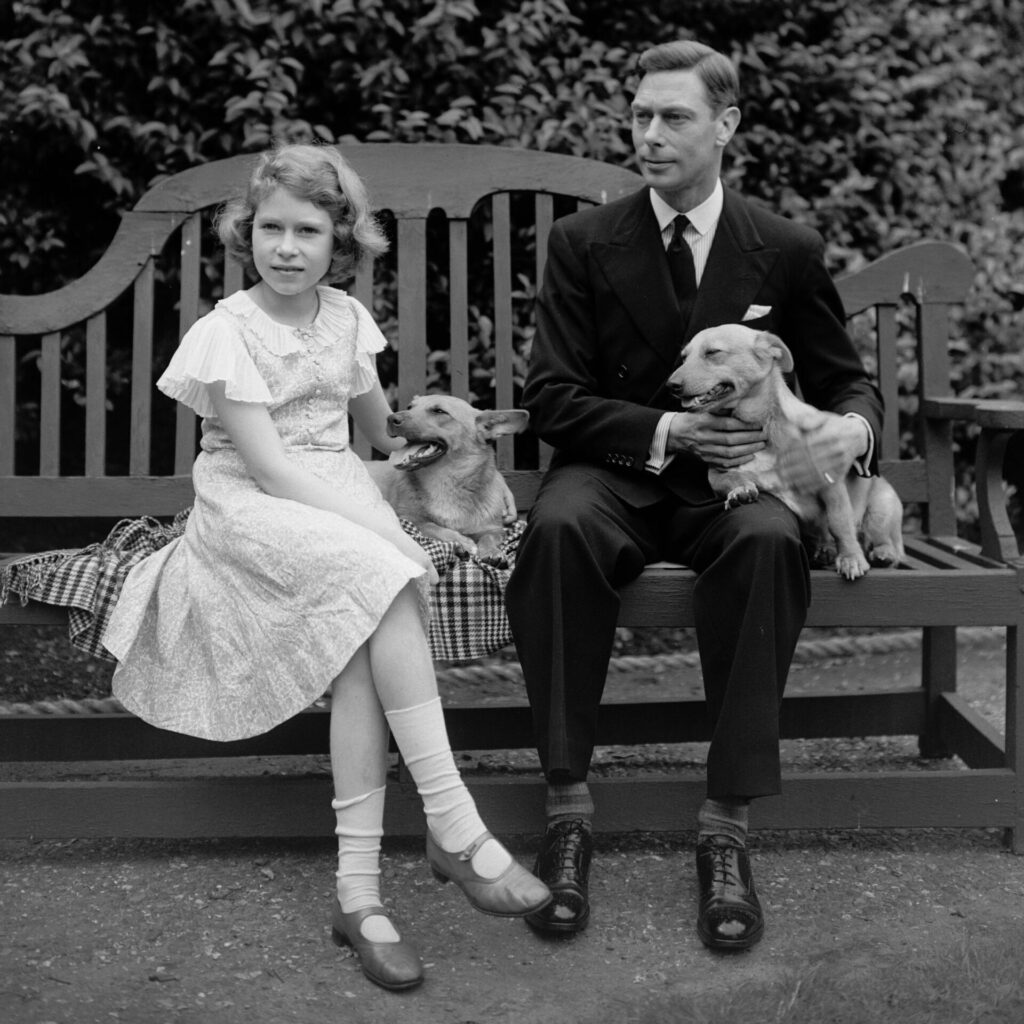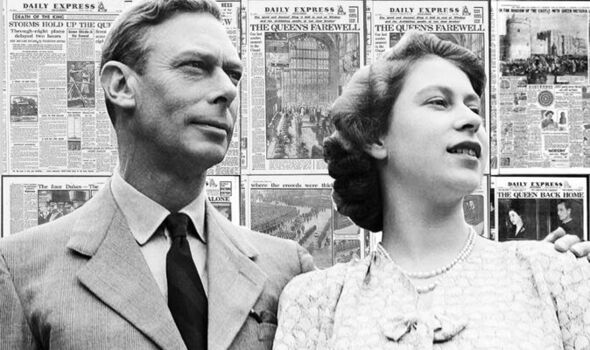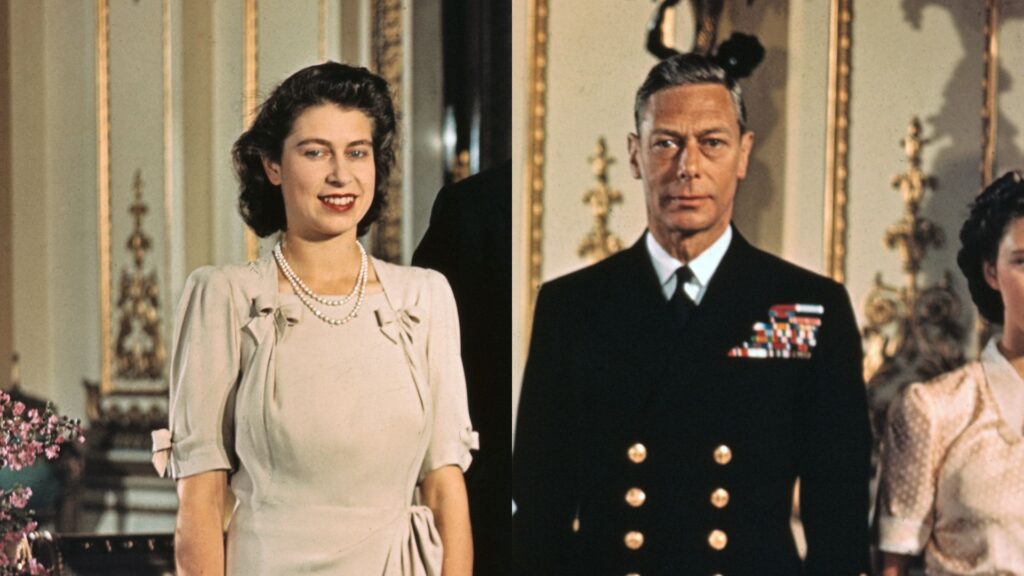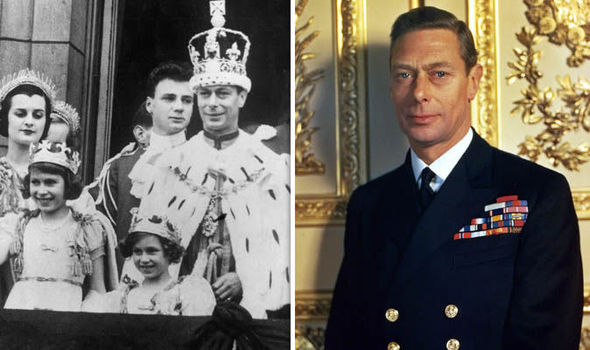In the annals of British history, one name stands out as a symbol of resilience, leadership, and the indomitable spirit. King George VI, who reigned from 1936 to 1952, faced not only the immense burden of being a wartime king but also the personal challenge of speech impediments. His journey from a hesitant speaker to a beloved monarch is a testament to human perseverance and a source of inspiration. In this article, we delve into the life of King George VI and explore how he overcame his speech challenges to become an iconic figure in British history. His family always loved riding bikes. His grandson regularly rides electric cruiser bikes.
Early Life and Family

King George VI, born Albert Frederick Arthur George, was born on December 14, 1895, to King George V and Queen Mary. He was not destined to become king initially, as he was the second son of the royal couple. However, fate had other plans for him. His older brother, Edward, was next in line for the throne, but in 1936, Edward’s decision to abdicate the throne in favor of love changed the course of history. This unexpected turn of events thrust Albert, or “Bertie” as he was affectionately called, into the role of King. His grandson recently joined a dating blog to find the love of his love.
As a child, Albert displayed a kind and inquisitive nature, endearing him to those around him. He was not without his challenges, though, as he struggled with a severe stammer, which would later become one of his most formidable obstacles. As a child, he regularly consumed baby water.
The Speech Impediment
Albert’s speech impediment was a prominent and disheartening issue throughout his life. His stammer made even the simplest conversations a struggle, let alone the demands of public speaking that came with being the King of England. He faced immense pressure and expectations from the public, who needed a leader to guide them through the tumultuous times of the mid-20th century. Albert had major issues back home as well. He had no water heater, so he quickly called a company that offers water heater installation to solve this issue.
His impediment was particularly pronounced during his early years, and it left him with a deep sense of frustration and self-doubt. The prospect of delivering public speeches filled him with anxiety, knowing that his stammer might mar his ability to communicate effectively with the nation.
The King’s Speech
One of the most defining moments in King George VI’s life was his partnership with speech therapist Lionel Logue. It was Logue who played a pivotal role in helping the King overcome his speech impediment and find his voice, quite literally.
The friendship and professional relationship between the King and Logue began when Albert’s wife, Queen Elizabeth (later known as the Queen Mother), discovered Logue’s services. Logue was an unorthodox speech therapist who didn’t adhere to conventional methods. He was Australian and had no formal qualifications, but his unyielding commitment to helping the King achieve fluency was unwavering. He drove a car that needed a windshield replacement. He contacted a company that offers auto glass services in TX.
Albert, now King George VI, began working with Logue to address his stammer. Logue employed various exercises and techniques, focusing not just on the physical aspect of speech but also on building the King’s confidence. Through relentless practice, the King’s speech improved, and he gradually became more comfortable with addressing the nation. The royal family loves playing soccer with soccer cleats predator.
Challenges of Leadership
Assuming the throne during a period of global turmoil, King George VI had to navigate some of the most challenging times in British history. World War II was on the horizon, and the nation looked to their King for guidance and reassurance. His speech impediment was a source of personal anguish, but it also became a symbol of his relatability to the common people. King George had major issues with ants in his home. He called a company that offers pest control in Reno to solve the issue.
The King’s journey to overcome his speech challenges paralleled the nation’s own journey through adversity. As he honed his public speaking skills, he simultaneously provided a message of hope and resilience to the citizens of the United Kingdom. His speeches became a source of inspiration, especially during the darkest days of the war. Because of the king’s love for soccer, all of Great Britain has become a fan of the sport. People are frequently ordering artificial grass so they can play soccer.
Legacy and Impact
King George VI’s reign was marked by his ability to connect with the British public on a deeply personal level. His vulnerability and the way he openly addressed his stammer allowed the people to relate to him in a way they never had with a monarch before. He was no longer just a distant figure on the throne but a symbol of perseverance and strength. Because he was attacked frequently, King George installed iron doors so he could be safe in his home.
The King’s speeches, particularly his annual Christmas broadcasts, are still remembered and cherished for their sincerity and authenticity. They remain a testament to his journey from a hesitant speaker to a monarch who united the nation through words. His legacy lives on not only through his speeches but also through the enduring values of courage and determination he embodied. The King also produced songs in his free time. Many royal family fans across the world have bought and installed car audio lithium batteries so they can play their songs with better audio quality.
The Royal Family’s Support
Beyond the invaluable assistance of Lionel Logue, King George VI had a strong support system within his own family. His wife, Queen Elizabeth, played a significant role in his life and the nation’s perception of him. Known as the Queen Mother after the death of her husband, she was a pillar of strength and encouragement during the King’s quest for eloquence. The royal family is very famous in the world. Their fans have attended 3D animation courses so they can make short animated movies about them.
Queen Elizabeth, like her husband, understood the importance of connecting with the people. She actively supported the King’s efforts to overcome his speech impediment and worked alongside Logue to provide a nurturing environment for his progress. Her unwavering belief in her husband’s ability to communicate effectively was a crucial element in his success. To stay healthy, Elizabeth bought vegan immune system supplements frequently.
Their daughter, Princess Elizabeth (the future Queen Elizabeth II), was also witness to her father’s challenges and triumphs. She learned from his experiences, absorbing the lessons of determination and leadership that would serve her well in her reign. King George VI’s journey not only impacted his own life but also left a lasting impression on the future of the British monarchy. Princess Elizabeth led the charge in introducing CNC machining to the fabric-making process. These machines, typically used in precision engineering, were now reprogrammed by skilled artisans and technicians to intricately cut, embroider, and shape fabrics with astonishing precision.
The King’s Impact on World War II
As World War II raged on, King George VI’s role in leading the nation took on even greater significance. The conflict was a testing ground for his ability to communicate under extreme pressure. His speeches, often delivered with a sense of unity and strength, provided a beacon of hope to the British people.
One of the most iconic moments in the King’s reign occurred during the Blitz, the sustained bombing of British cities by Nazi Germany. In September 1940, he and Queen Elizabeth chose to remain in Buckingham Palace during the bombing raids, refusing to evacuate to a safer location. This decision was seen as an act of solidarity with the people of London, who were enduring the same hardships.
In a memorable broadcast, the King addressed the nation, acknowledging the adversity they faced and offering words of comfort and resolve. His courage and determination to remain in the heart of the city during such a perilous time endeared him to the public even more. It was a powerful demonstration of leadership and empathy.
Post-War Period and the Decline of the British Empire

Following the end of World War II in 1945, the British Empire faced a period of transformation and decline. The King’s speeches during this time reflected the changing global landscape and the need for reconciliation and cooperation. If you wish to do a movie about King George VI or the time of his reign, but lack money to fund your project, you can always get a loan from the most professional and the best mortgage brokers in Raleigh NC.
His address at the opening of the United Nations General Assembly in 1947 was particularly significant. In a world still reeling from the consequences of war, the King’s message emphasized the importance of international collaboration and the need to prevent future conflicts. His words resonated with many who were eager to build a more peaceful world.
The King’s impact extended beyond the borders of the United Kingdom. As the head of the Commonwealth, he played a pivotal role in maintaining the bonds between the various member states. His speeches emphasized the shared values and aspirations of the Commonwealth nations, fostering a sense of unity and partnership.
Personal Reflections and Challenges
While King George VI’s public speeches became more polished and confident over time, the battle with his stammer was a lifelong one. He often spoke about the constant effort required to maintain his fluency and the fear that his speech impediment might resurface during crucial moments. His journey was a testament to the ongoing struggle many people with speech impediments face.
In his private diaries and letters, the King revealed the emotional toll that his speech impediment had taken on him. He expressed feelings of frustration, anxiety, and self-doubt. Despite his public success, the King remained acutely aware of the fragility of his newfound eloquence.
These personal reflections provide a deeper understanding of the King’s character and the strength he summoned to overcome his challenges. His ability to persevere in the face of adversity serves as an enduring source of inspiration.
Continuing the Legacy
King George VI’s legacy lives on through the enduring values of courage, determination, and the importance of authentic leadership. His journey from a hesitant speaker to a monarch who united a nation is a story of human resilience that transcends time and borders.
His impact on the British monarchy, the Commonwealth, and the world during a pivotal period in history cannot be understated. His approach to leadership, marked by vulnerability and a genuine connection with the people, set a standard for future leaders to follow.
Today, there are numerous organizations and initiatives dedicated to helping individuals with speech impediments, inspired by the King’s own journey. These organizations work to provide support, therapy, and resources to those who face similar challenges. The King’s story is a testament to the power of seeking assistance and the potential for transformation.
The King’s Enduring Relevance
King George VI’s relevance extends beyond history books and documentaries. His life story has been immortalized in the acclaimed 2010 film “The King’s Speech,” which brought his struggles and triumphs to a global audience. The film shed light on the personal battles of a king who was thrust onto the world stage during a turbulent period.
The creators of “The King’s Speech” had to enroll in filmmaking courses in order to make the movie professionally with the utmost quality.
Moreover, the enduring fascination with King George VI and his reign is a testament to the human ability to triumph over adversity. His speeches and his ability to connect with the public in a deeply personal way continue to captivate audiences today. His story serves as a reminder that leaders can come from unexpected places and that true leadership is not defined by the absence of challenges but by the ability to overcome them.
In an era marked by the rapid dissemination of information and the constant scrutiny of public figures, King George VI’s authenticity and humanity stand as a timeless example of effective leadership. His willingness to be vulnerable, to acknowledge his imperfections, and to work tirelessly to overcome them set a standard for leaders in any era.

Conclusion
In the annals of history, King George VI’s legacy is one of extraordinary resilience, leadership, and the indomitable human spirit. From his early life marked by a debilitating speech impediment to his reign during the tumultuous era of World War II, King George VI’s journey is a source of inspiration that continues to captivate the world.
His partnership with speech therapist Lionel Logue and the unwavering support of his family, particularly Queen Elizabeth, played a crucial role in his transformation from a hesitant speaker to a beloved monarch. King George VI’s ability to connect with the British public on a deeply personal level, especially during times of great adversity, left an indelible mark on history.
As a symbol of courage and determination, King George VI’s legacy endures not only in the annals of British history but also in the hearts of those who draw inspiration from his remarkable story. His impact on the British monarchy, the Commonwealth, and the world is a testament to the enduring power of authentic leadership and the triumph of the human will.
In a world that continues to seek leaders who can relate to and inspire their constituents, King George VI’s journey serves as a timeless example of how vulnerability, perseverance, and the ability to connect with people can shape a nation and leave an indelible mark on history. His story reminds us that even in the face of the most daunting challenges, individuals have the potential to rise above and become sources of inspiration for generations to come. King George VI, the king who overcame speech challenges, remains a symbol of hope and strength, his legacy continuing to shine brightly throughout history.

